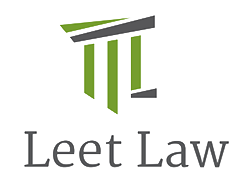
The Americans with Disabilities Act (ADA) of 1990 was landmark legislation that sought to protect those with disabilities in the employment process, from a company’s posting a job opening, to the interviewing and hiring process, and throughout the period of employment. A principal feature of the ADA is that it requires employers to offer reasonable accommodations to job applicants and employees to enable them to fulfill the task ahead.
The ADA protects job applicants and employees in three instances. One is when they have a physical or mental impairment that substantially limits a major life activity such as breathing, walking, talking, hearing, seeing, sleeping, caring for one's self, performing manual tasks, and working. A second is when the individual has a record or history of a substantially limiting impairment, and the third is when the person is regarded as having a substantially limiting impairment, whether true or not.
When it comes to applying for a job, a person with a disability must be qualified for the position in terms of education, training, experience, skills, and licenses. If they do qualify and apply for the position, then the employer is required to provide reasonable accommodations beginning with the job interview, so long as the accommodation doesn’t impose an “undue hardship” on the employer.
Whether you're involved in the employment hiring process or you're a disabled individual seeking employment in or around San Jose, California, and have questions or concerns about the hiring standards of the ADA, contact the ADA compliance attorneys at Leet Law.
With more than 25 years of experience in employment law, we can clarify any issue you have and represent you to protect your rights. We also proudly serve clients in San Francisco, Oakland, Palo Alto, and the rest of the Bay Area.
Rights and Protections Provided Under the ADA
As mentioned above, job applicants and employees who fall into one of the three categories of being a disabled individual are entitled to, at the minimum, consideration of a reasonable accommodation for the task ahead. This means that a qualified disabled individual entering into a job interview can request a reasonable accommodation. Employees assigned certain duties for which they are otherwise qualified can also request reasonable accommodation.
The would-be employer or actual employer is required to enter into an interactive dialogue with the applicant or employee over these requests, and unless they impose an undue hardship on the employer, they should be honored. The Equal Employment Opportunity Commission (EEOC), which oversees and enforces the ADA, maintains that most reasonable accommodation requests cost less than $500 and thus do not represent undue hardship for the employer.
Conducting Lawful Job Interviews Under the ADA
In a nutshell, the process of screening and interviewing a job applicant with a real or perceived disability must be done using the same standards and procedures as with a person who is not disabled or perceived to be disabled. This means that the questioning should be “neutral.”
The ADA prohibits employers from asking questions before making a job offer that is likely to reveal the existence of a disability. The interviewer cannot even ask questions about any treatments or diagnoses the applicant has received, even the name of any prescription drugs being taken.
A second and equally important requirement of interviewing an applicant with a disability is to provide a reasonable accommodation for the interviewee if it does not pose an undue hardship when the applicant so requests. One example would be providing written materials, including questionnaires and tests, in an accessible format, such as large print, braille, or audiotape. Another might be to accommodate the disabled applicant with an accessible location such as on a ground floor, or modify equipment or devices used in the interview process.
Consequences of Noncompliance
A company that does not provide reasonable accommodations for its hiring or employment practice is subject to complaints being filed with the EEOC. The EEOC has the power to investigate, mandate changes, impose sanctions, and even sue the employer. The individual filing the complaint may also be given a “right to sue” notice to take legal action against the offending employer.
Compassionate Guidance for All ADA Matters
If you as an employer or hiring agent for an employer have questions or concerns, or you as a job applicant have been subjected to ADA violations in the interviewing process, reach out to us at Leet Law for answers and options for resolving everything.
We proudly serve clients in San Jose and elsewhere in the San Francisco Bay Area. Our ADA compliance attorneys will work with you to protect everyone’s rights.
